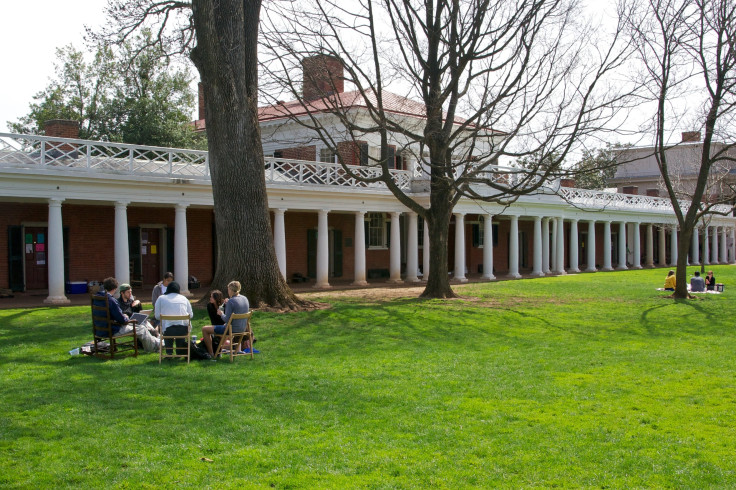Rolling Stone Rape Story Backlash Worries Sexual-Assault Victims

When Rolling Stone first published its story about Jackie, the victim of an alleged gang rape in a frat house at the University of Virginia, the disturbing piece galvanized the national conversation about on-campus sexual assault. But that changed this week when the magazine backpedaled on its main source, publishing an editor's note saying that “there now appear to be discrepancies in Jackie’s account, and we have come to the conclusion that our trust in her was misplaced.”
The magazine's note "to our readers" is just 301 words, but for assault victims and activists, it changed everything.
“It sort of feeds into the older idea that we shouldn’t believe victims, and that all people have some reason or ulterior motive for coming forward,” said Ali Safran, 22.
Safran, 22, was a victim of sexual assault during her senior year of high school, and struggled to tell others about what happened, and be believed. Even after she went to police, she says, lawyers told her to recant her story.
The Rolling Stone situation will only make girls like her more afraid to tell their stories, she told International Business Times.
“I think it will further incite people to not want to come forward to campus police or law enforcement, for fear of having their story picked apart and fear of being disbelieved yet again,” she said.
She founded the advocacy group Surviving in Numbers, a nonprofit organization that allows survivors to post their stories online, and develops materials for use in high schools to help prevent campus sexual assault.
Safran and other activists have followed the Rolling Stone story, and subsequent reactions to the magazine's backtracking, very closely. Some blame Rolling Stone for not verifying their source's account more thoroughly before publishing such a sensitive story. Others harken back to a story involving three Duke University lacrosse players falsely accused of rape.
The Washington Post published an article on Friday detailing some of the discrepancies in Jackie’s Rolling Stone account, and noted responses from her school friends and some of the accused. For instance, an alleged attacker she worked with as a university lifeguard was found to never have been enrolled in the fraternity in question.
In the meantime, many journalists, victims and activists have taken to social media to support Jackie.
“I am glad that individuals like me are using the #IStandWithJackie hashtag to show that we won’t be swayed by rape myths and will continue to believe her -- and all survivors,” Wagatwe Wanjuki, a rape survivor and activist, told IBTimes.
“I think the questioning of the veracity of Jackie’s story has allowed us to talk about the reality of rape and that it is never as neat and perfect as we would like,” Wanjuki said.
Discrepancies in Rolling Stone's reporting are by no means helpful, but the conversation itself is important, she said. And the problem of on-campus assault is still real.
“This controversy shouldn’t take away from the fact that UVA (as well as many other colleges) need to do their jobs and make sure they are keeping their campuses safe,” she said. “The developments don’t change the fact that the administration doesn’t believe they should expel rapists, for example.”
In terms of swaying public opinion, Wanjuki and others said the long term impact may be less than some predict. “I don’t think it discredits women’s rights movements because the people who are taking glee from Rolling Stone’s statement today were the ones who weren’t going to believe Jackie anyway,” she said.
© Copyright IBTimes 2025. All rights reserved.






















